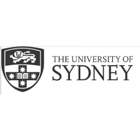- الأخبار والمقالات
- Find usIDP AustraliaIDP BahrainIDP BangladeshIDP CambodiaIDP CanadaIDP ChinaIDP EgyptIDP GhanaIDP Hong KongIDP IndiaIDP IndonesiaIDP IranIDP JordanIDP KenyaIDP KoreaIDP KuwaitIDP LebanonIDP MalaysiaIDP MauritiusIDP Middle EastIDP NepalIDP New ZealandIDP NigeriaIDP OmanIDP PakistanIDP PhilippinesIDP Saudi ArabiaIDP SingaporeIDP Sri LankaIDP Taiwan, ChinaIDP ThailandIDP TurkeyIDP UAEIDP VietnamIDP Corporate
- Social
- العربية
- Where we operate
- Courses
- Scholarships
- IELTS
- About IDP
- خدمات الوصول
- الأخبار والمقالات
- Find us
- Find us
- Find nearest IDP offices
- IDP Australia
- IDP Bahrain
- IDP Bangladesh
- IDP Cambodia
- IDP Canada
- IDP China
- IDP Egypt
- IDP Ghana
- IDP Hong Kong
- IDP India
- IDP Indonesia
- IDP Iran
- IDP Jordan
- IDP Kenya
- IDP Korea
- IDP Kuwait
- IDP Lebanon
- IDP Malaysia
- IDP Mauritius
- IDP Middle East
- IDP Nepal
- IDP New Zealand
- IDP Nigeria
- IDP Oman
- IDP Pakistan
- IDP Philippines
- IDP Saudi Arabia
- IDP Singapore
- IDP Sri Lanka
- IDP Taiwan, China
- IDP Thailand
- IDP Turkey
- IDP UAE
- IDP Vietnam
- IDP Corporate
- Social
- تبديل اللغة
- آي دي بي للتعليم /
- الجامعات والكليات /
- Australia /
- جامعة سيدني /
- Bachelor of Arts and Bachel...


المكان
Australia
المؤهل الدراسي
Dual Degree
الرسوم
AUD52000
(2025)
المدة
5 Year(s)
موعد بدء الدراسة القادم
17 February 2025
درجة القبول
6.5
امتحان الآيلتسCOURSE_INFO
Criminology is a rich discipline that draws on sociology, psychology, science, law, philosophy, culture studies and history to draw attention to the social dimensions of crime and deviancy and assess the effectiveness and implications of crime control measures. You will gain an advanced understanding of crime, criminal justice practices, deviance, causes of crime, victimisation, social control, juvenile justice, indigenous justice, crime prevention, prison and other alternatives to punishment, as well as medico-legal forensic practices.
The first-year units lay the foundation to the study of crime, social harm and the criminal justice system. Second year units will deepen your understanding of criminology theories and concepts, as well as the criminal justice institutions and practices. You will analyse key debates around crime in relation to topics such as youth, race, gender, ethnicity and Indigeneity. In addition, you will critically examine how society responds to crime through social control and the criminal justice institutions and practices.
A key focus will be placed on features of policing, sentencing, punishment, prisons and alternatives to punishment, such as restorative justice. In third-year units you will consolidate your critical analytical skills in criminology as you delve into complex relationship between crime, law, medicine and science. In addition, you will critically analyse the development and nature of criminal justice in relation to the complex interface of “law and order politics’, the media, culture, crime and society. Finally, you will be able to apply your advanced knowledge to a piece of criminological research of your choice.
- المنح الدراسية عرض جميع المنح الدراسية
- التدريب
رسوم البرامج الدراسية إرشادية فقط ويجب التعامل معها كدليل. للحصول على تكلفة دقيقة
Duration: 5 Year(s)
Fees: AUD52000
| موعد بدء الدراسة | المكان |
|---|---|
| Semester 2 (July), 2026 | Camperdown |
| Semester 1 (February), 2026 | Camperdown |
| Semester 1 (February), 2025 | Camperdown |
| Semester 2 (August), 2025 | Camperdown |
متطلبات القبول في جامعة سيدني
IELTS - A minimum result of 6.5 overall and a minimum result of 6.0 in each band
TOEFL IBT - A minimum result of 85 overall including a minimum result of 17 in Reading, Listening and Speaking and 19 in Writing
A secondary education qualification such as the NSW Higher School Certificate (including national and international equivalents), OR approved higher education study, including approved preparation courses.
آخر موعد للتقديم
الموعد النهائي لتقديم الطلبات غير متاح تحدث إلى أحد مستشاري آي دي بي لمزيد من المعلومات التفصيلية
Further information
If you aren't eligible for the above entry requirements, you might ant to explore pathway options at جامعة سيدني. If you want to find out more, speak to our counsellors.
تصنيف التايمز للجامعات العالمية (THE)
61st / 1250
تصنيف التايمز للجامعات العالمية (THE)آراء طلابنا
لم نتلق أي تقييمات لهذه المؤسسة حتى الآن.
مختارة لك
- الدراسة الجامعية
- Australia
- نوع التمويل: Fee waiver/discount
- الدراسة الجامعية
- Australia
- نوع التمويل: Fee waiver/discount
- الدراسة الجامعية
- Australia
- DEADLINE: Dec 2024
- نوع التمويل: Fee waiver/discount
- الدراسة الجامعية
- Australia
- نوع التمويل: Fee waiver/discount
- الدراسة الجامعية
- Australia
- DEADLINE: 15 Dec 2024
- نوع التمويل: Fee waiver/discount
Your action plan
خطوة 1
Shortlist your courses
Choose the best three courses you’re most likely to pursue.
خطوة 2
Check your eligibility
Get an instant in-principle offer for courses with the IDP FastLane tag.
خطوة 3
Apply through IDP Live
Fill out the form once and use it to apply to multiple courses.
كيف تعمل خاصية FastLane بواسطة آي دي بي؟
مع "العرض المبدأي" من FastLane، ستعرف في دقائق إذا ما تم قبولك!
اختر المؤسسة والبرنامج الدراسي
أنشئ ملفك الأكاديمي
قدم طلبك للحصول على "عرض مبدأي"
ستصلك القرارات من المؤسسة (المؤسسات) التي اخترتها في دقائق!
استعد لتقديم طلبك مع مستشار تعليمي متخصص




